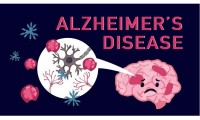-
Roche teams up with Lilly to validate Alzheimer’s blood test
- Source: drugdu
- 142
- March 22, 2023
-
Scientists Develop New Blood Test for Detecting Alzheimer’s Disease
- Source: drugdu
- 137
- March 21, 2023
-
Mouse study tests a novel approach against Alzheimer’s
- Source: drugdu
- 1,895
- December 13, 2019
-
Rise in Shares for Biogen, Eisai as Alzheimer’s Drug Succeeds in Mid-Stage Trial.
- Source: Reuters
- 697
- July 9, 2018
-
EIP Pharma bags $20.5M to support Alzheimer’s drug through phase 2
- Source: Ddu
- 576
- May 18, 2018
-
Body clock disruptions occur years before memory loss in Alzheimer’s
- Source: medicalxpress
- 620
- February 1, 2018
-
Amgen, Novartis Rev Up for New Alzheimer’s Study
- Source: Pharmalive
- 682
- November 6, 2017
-
Alzheimer’s–Brain’s protective mechanism revealed
- Source: medicalnewstoday
- 625
- October 30, 2017
-
Alector and AbbVie Announce Collaboration to Advance a Novel Class of Immune Therapies for Patients with Alzheimer’s Disease
- Source: finance.yahoo
- 677
- October 26, 2017
-
New study examines potential Alzheimer’s disease prevention strategies
- Source: news-medical
- 482
- August 10, 2017
your submission has already been received.
OK
Subscribe
Please enter a valid Email address!
Submit
The most relevant industry news & insight will be sent to you every two weeks.













